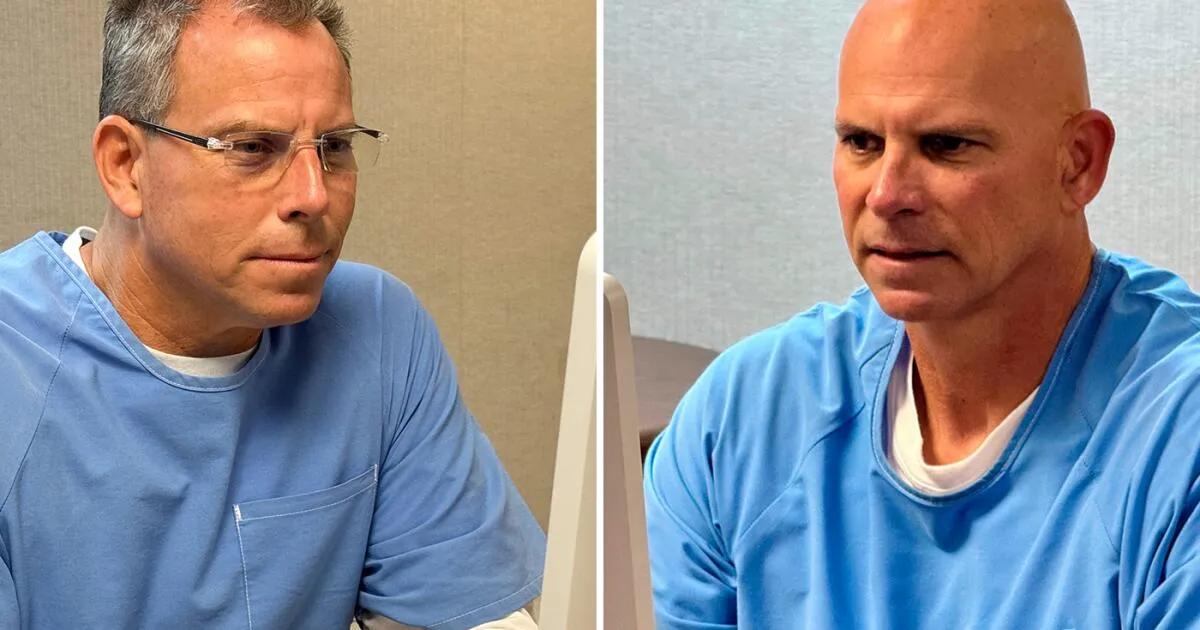
This week, the highly anticipated parole hearings for brothers Erik and Lyle Menendez were marred by unexpected controversy and tight control from state prison officials. Despite efforts to maintain order and limit outside interference, the sudden release of an audio recording nearly derailed the proceedings. This marked a significant moment for the Menendez brothers, as it was the first time since their conviction and life sentences for the 1989 shotgun murders of their parents in Beverly Hills that they had a chance at freedom.
On Thursday, Erik Menendez, now 54, had his parole hearing, which ended with the state parole board denying his petition after an exhaustive all-day session. A reporter from the Los Angeles Times had been granted limited access to observe the hearings from a designated conference room at the California Department of Corrections Rehabilitation headquarters near Sacramento. The media coverage of the hearings was tightly regulated; audio recordings were strictly forbidden, and media organizations were prohibited from disseminating any information until after the parole board had issued its decision.
However, chaos ensued when a news report broke shortly before Lyle Menendez's hearing on Friday. ABC7, a local TV station, published a recording of Erik's hearing, claiming it had been inadvertently released in response to a public records request. A spokesperson for the corrections department later confirmed that the audio had been “erroneously” released but did not provide further details. This revelation temporarily halted Lyle's hearing, leading to frustration and accusations of misconduct directed at prison officials. “This is disgusting,” shouted Tiffani Lucero Pastor, a relative of the brothers. “You’ve misled the family, and now you’ve violated this family and their rights.”
Heidi Rummel, the parole attorney representing both Erik and Lyle Menendez, expressed her outrage during the lengthy hearing, which had already stretched for over nine hours. She called for a break and argued that the integrity of the hearing was compromised due to the release of the audio. “We are sitting here asking Mr. Menendez to follow rules,” Rummel remarked. “And in the middle of this hearing, we find out CDCR is not following its own rules. It’s outrageous.”
The parole board was still deliberating Lyle’s fate, while Erik faced intense scrutiny about his past violations, including the use of contraband cellphones. Rummel highlighted the emotional toll on the family, stating, “I don’t think you can possibly understand the emotion of what this family is experiencing.”
The Menendez brothers’ path to parole emerged after Los Angeles County District Attorney George Gascón petitioned a judge to reduce their sentences to 50 years, thereby making them eligible for parole. However, the new District Attorney, Nathan Hochman, opposed this petition after defeating Gascón in the November election. Despite Hochman's efforts, L.A. County Superior Court Judge Michael Jesic denied his request, ruling that prosecutors failed to prove the brothers posed a danger to the public, thus clearing their way to the parole board.
The case has garnered national attention, fueled by social media campaigns advocating for the brothers' release, particularly in light of allegations regarding their father’s sexual abuse. The release of the audio recording only intensified public interest and speculation surrounding the hearings.
During the hearing, Parole Commissioner Julie Garland noted that under the California Public Records Act, audio of the hearings could be released, and transcripts typically become public 30 days after a decision. Rummel raised concerns over the unusual nature of the audio release, suggesting it was another attempt to turn the hearings into a public spectacle. “It’s highly unusual,” she stated. “It’s another attempt to make this a public spectacle.”
As the hearings concluded, Rummel indicated that several family members of the Menendez brothers chose not to testify due to the audio leak, stating, “It’s my impression from the family members that that’s not enough of an assurance.” Ultimately, the two-member parole board decided that the audio incident would not impact their ruling, which came late Friday evening, denying Lyle’s request for parole. Both brothers remain eligible for parole in three years but can petition for an earlier hearing in one year.